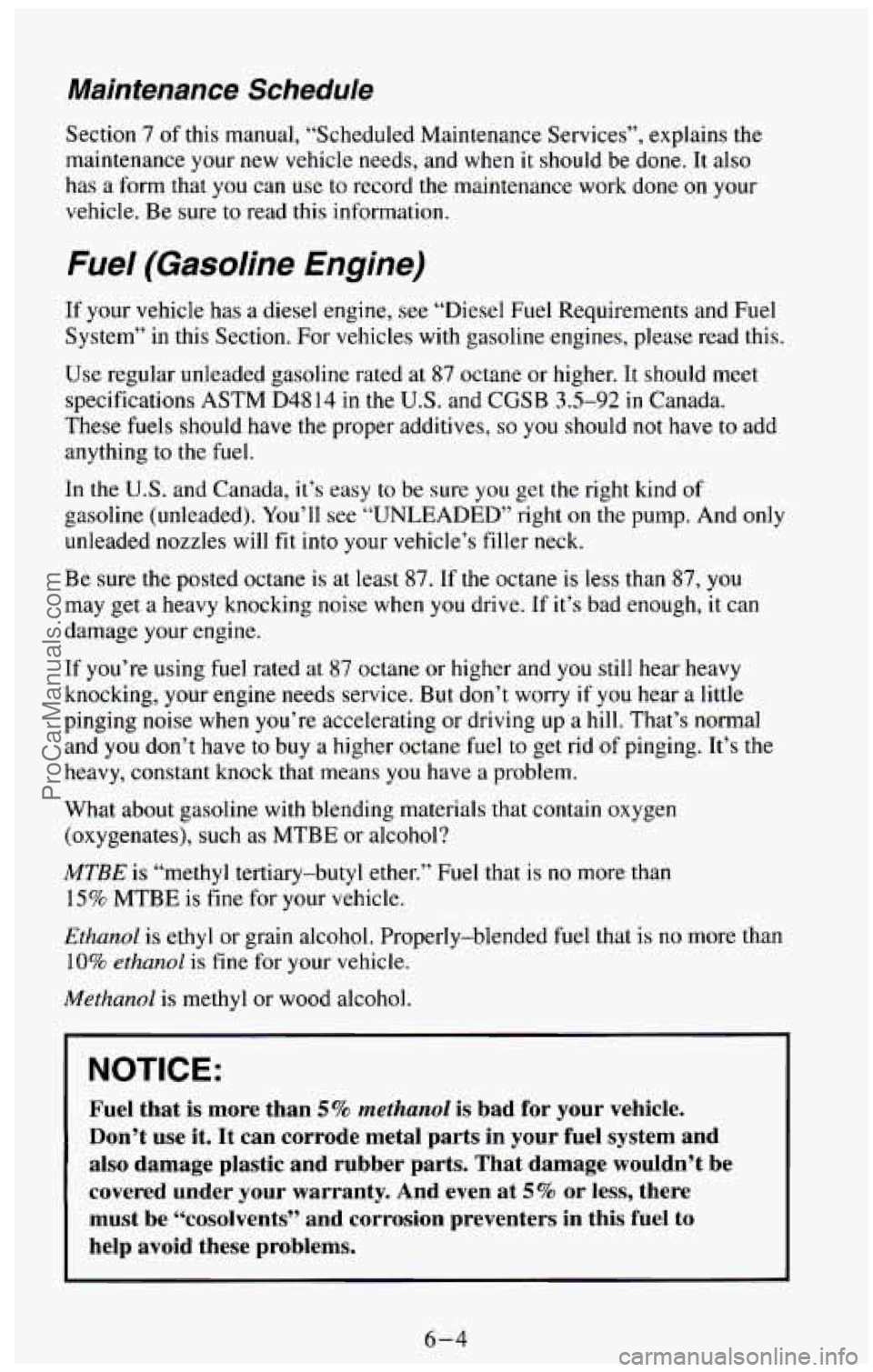octane CHEVROLET SUBURBAN 1994 Owners Manual
[x] Cancel search | Manufacturer: CHEVROLET, Model Year: 1994, Model line: SUBURBAN, Model: CHEVROLET SUBURBAN 1994Pages: 385, PDF Size: 19.88 MB
Page 249 of 385

Maintenance Schedule
Section 7 of this manual, “Scheduled Maintenance Services”, explains the
maintenance your new vehicle needs, and when
it should be done. It also
has a form that you can
use to record the maintenance work done on your
vehicle. Be sure to read this information.
Fuel (Gasoline Engine)
If your vehicle has a diesel engine, see “Diesel Fuel Requirements and Fuel
System” in this Section. For vehicles with gasoline engines, please read this.
Use regular unleaded gasoline rated at
87 octane or higher. It should meet
specifications ASTM
D4814 in the U.S. and CGSB 3.5-92 in Canada.
These fuels should have the proper additives,
so you should not have to add
anything to the
fuel.
In the U.S. and Canada, it’s easy to be sure you get the right kind of
gasoline (unleaded). You’ll see
“UNLEADED” right on the pump. And only
unleaded nozzles will fit into your vehicle’s filler neck.
Be sure the posted octane
is at least 87. If the octane is less than 87, you
may get a heavy knocking noise when you drive. If it’s bad enough, it can
damage your engine.
If you’re using fuel rated
at 87 octane or higher and you still hear heavy
knocking, your engine needs service. But don’t worry
if you hear a little
pinging noise when you’re accelerating or driving up
a hill. That’s normal
and
you don’t have to buy a higher octane fuel to get rid of pinging. It’s the
heavy, constant knock that means
you have a problem.
What about gasoline with blending materials that contain oxygen
(oxygenates), such
as MTBE or alcohol?
MTBE is “methyl tertiary-butyl ether.” Fuel that is no more than
15% MTBE is fine for your vehicle.
Ethanol is ethyl or grain alcohol. Properly-blended fuel that is no more than
10% ethanol is fine for your vehicle.
Methanol is methyl or wood alcohol.
NOTICE:
Fuel that is more than 5 % methanol is bad for your vehicle.
Don’t use it.
It can corrode metal parts in your fuel system and
also damage plastic and rubber parts. That damage wouldn’t be
covered under your warranty. And even at
5% or less, there
must
be “cosolvents” and corrosion preventers in this fuel to
help avoid these problems.
6-4
ProCarManuals.com